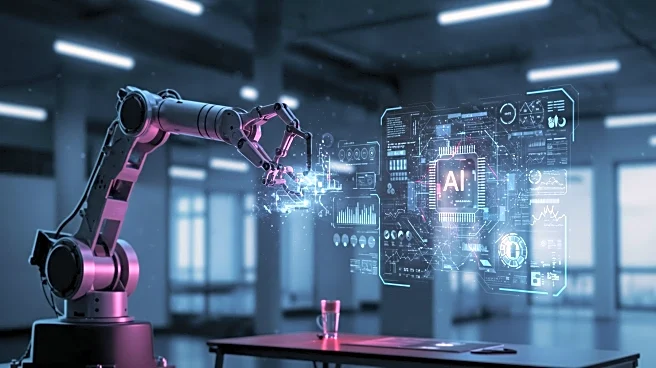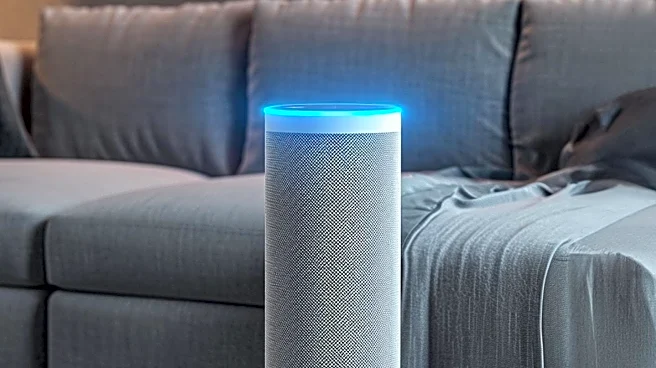What's Happening?
The debate over AI's role in the workforce is intensifying, with experts advocating for a collaborative approach rather than full automation. This perspective suggests that AI should enhance human capabilities rather than replace jobs, particularly in fields like healthcare and education. The discussion is informed by studies showing that AI tools can sometimes hinder rather than help when used to automate complex tasks without human oversight. The focus is on designing AI systems that work alongside humans, leveraging their strengths to improve outcomes.
Why It's Important?
The approach to AI integration has significant implications for the future of work and economic stability. Emphasizing collaboration over automation could preserve jobs and enhance productivity by combining human expertise with AI's analytical capabilities. This strategy could also mitigate the risks of job displacement and skill erosion, ensuring that workers remain integral to the decision-making process. As AI continues to evolve, finding the right balance between automation and collaboration will be crucial for sustainable economic growth and social cohesion.
Beyond the Headlines
The push for collaborative AI highlights broader societal and ethical considerations, including the need for transparency and accountability in AI systems. It also raises questions about the future of education and training, as workers will need to adapt to new roles that emphasize collaboration with AI. This shift could lead to a reevaluation of educational priorities, focusing on skills that complement AI capabilities. Additionally, the debate underscores the importance of inclusive AI development, ensuring that diverse perspectives are considered in designing systems that impact all aspects of life.









